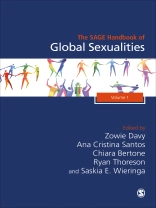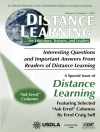This two-volume Handbook provides a major thematic overview of global sexualities, spanning each of the continents, and its study, which is both reflective and prospective, and includes traditional approaches and emerging themes. The Handbook offers a robust theoretical underpinning and critical outlook on current global, glocal, and ‘new’ sexualities and practices, whilst offering an extensive reflection on current challenges and future directions of the field. The broad coverage of topics engages with a range of theories, and maintains a multi-disciplinary framework.
PART ONE: Understanding Sexuality: Epistemologies/Conceptual and Methodological Challenges
PART TWO: Enforcing and Challenging Sexual Norms
PART THREE: Interrogating/Undoing Sexual Categories
PART FOUR: Enhancement Practices and Sexual Markets/Industries
PART FIVE: Sexual Rights and Citizenship (And the Governance of Sexuality)
PART SIX: Sexuality and Social MovementsPART SEVEN: Language and Cultural Representation
Table of Content
Volume 1
Editor′s Introduction – Ana Cristina Santos, Saskia Wieringa, Ryan Thoresen, Chiara Bertone, & Zowie Davy
Part 1: Understanding Sexuality: Epistemologies/Conceptual and Methodological Challenges
Chapter 1: Global Sexualities: Towards a Reconciliation Between Decolonial Analysis and Human Rights – Matthew Waites
Chapter 2: Pre-colonial Actualities, Post-colonial Amnesia and Neo-colonial Assemblage – Maria Pallotta-Chiarolli
Chapter 3: The Queer Epistemologies: Challenges to the modes of knowing about sexuality in Russia – Alexander Kondakov
Chapter 4: Researching Childhood Sexuality – Stefan Lucke
Chapter 5: Research perspectives on bisexuality – Annukka Lahti
Chapter 6: Asexuality as an epistemological lens: an evolving multi-layered approach – Rita Alcaire
Chapter 7: Anarchism and Sexuality – Lucy Nicholas
Chapter 8: Sex and Secrecy in the Field: Methodological dilemmas in research in Chinese massage parlours – Marie-Louise Janssen
Part 2: Enforcing and Challenging Sexual Norms
Chapter 9: Including Diversity? The politics of sex education in the Netherlands – Willemijn Krebbekx
Chapter 10: Sexuality Education: International policies, global developments, and contemporary research perspectives – Barbara Rothmüller & Marion Thuswald
Chapter 11: Disrupting heterosexuality in intergenerational relations – Chiara Bertone
Chapter 12: Trans Athletes and the Post-human: a critical analysis of trans policies in sports – Ana Lucia Santos
Chapter 13: Heteronormativity and Passionate Aesthetics – Saskia E. Wieringa
Chapter 14: Prison Heterocissexual Complex: Sociospatial Politics of Queer Incarceration and the Case of Turkey – Ece Canli
Part 3: Interrogating/Undoing Sexual Categories
Chapter 15: BDSM – Robin Bauer
Chapter 16: Introducing the new kid on the block: Polyamory – Stefan F. Ossmann
Chapter 17: Multiple estrangements in the twilight zone: chronic illness and queerness in Southern Europe – Mara Pieri
Chapter 18: Hijras in South Asia: Rethinking the dominant representations – Adnan Hossain
Chapter 19: Queering the Postcolony: Same-sex desire and Xhosa Culture in Postcolonial South Africa – Lwando Scott
Chapter 20: Tacit Power: A Case of HIV-Positive Housewives in Indonesia – Johanna Debora Imelda & Andi Nur Fa’izah
Volume 2
Part 4: Enhancement Practices and Sexual Markets/Industries
Chapter 21: ′Virility Medicines′ and Changing Sexualities in Precarious Transformations in West Papua – Diana Teresa Pakasi
Chapter 22: Questioning the ′viagrization′ of (hetero)sexual ageing – Raffaella Ferrero Camoletto, Catherine Barrett, & Emily Wentzell
Chapter 23: Consuming yourself into being: Women′s consumptive practices and the articulation of acceptable heterosexual femininity – Claire Moran & Julie-Anne Carroll
Chapter 24: Social Representation, Identity and HIV Prevention: The Case of Pr EP among Gay Men – Rusi Jaspal
Chapter 25: The Algorithms of desire: The field of the pornographic – Karen Gabriel
Chapter 26: From zero-tolerance to full integration. Rethinking prostitution policies – Petra Östergren
Chapter 27: Criminalise women buying sex? Neo-abolitionist influence on Australian politics and media consumers – Hilary Caldwell & John de Wit
Part 5: Sexual Rights and Citizenship (and the Governance of Sexuality)
Chapter 28: Sexuality, identity and the politics of recognition – Paddy Mc Queen
Chapter 29: Sexuality, the law and the experiences of women in Ireland – Christina Quinlan
Chapter 30: Youth and Sexual Rights – Ryan Thoreson
Chapter 31: Sexual Citizenship Re-centred: Gender and Sexual Diversity in Indonesia – Sharyn Graham Davies
Chapter 32: Transgender Persons in Indian Courtrooms – Surabhi Shukla
Part 6: Sexuality and Social Movements
Chapter 33: Queer Muslim Challenges and Resistances within the Context of Globalized Sexualities – Daniel Ahmed Fernández
Chapter 34: ‘Gender Ideology’ as Modular Discourse: A Survey of Transatlantic Activism Against Gender – Annie Wilkinson
Chapter 35: Borrowing and imitation in post-Soviet trans activisms – Yana Kirey-Sitnikova
Chapter 36: Questioning pathologization in clinical practice and research from trans and intersex perspectives – Amets Suess Schwend
Chapter 37: Abstinence: A Global Perspectives – Nicholas Velotta & Pepper Schwartz
Chapter 38: Accounting and Authorizing: Sexuality, Violence, and Mass Atrocity Crimes – Nomvuyo Nolutshungu
Part 7: Language and Cultural Representation
Chapter 39: Non-binary Sexualities: The Language of Desire, Practice, and Embodiment – Sebastian Cordoba
Chapter 40: Images of Sexuality: The Aestheticization of Same-Sex Intimacy in Francophone Literary and Filmic Productions – Aminata Cécile Mbaye
Chapter 41: Bodies in Transition: The Bakla as Transgender in Philippine Cinema – Mikee N. Inton
Chapter 42: Performing Queer at the Theatre-Documentary Convergence: Mediated Queer Activism in Contemporary China – Hongwei Bao
Chapter 43: Freedom Affects in Trans Erotica – Zowie Davy












